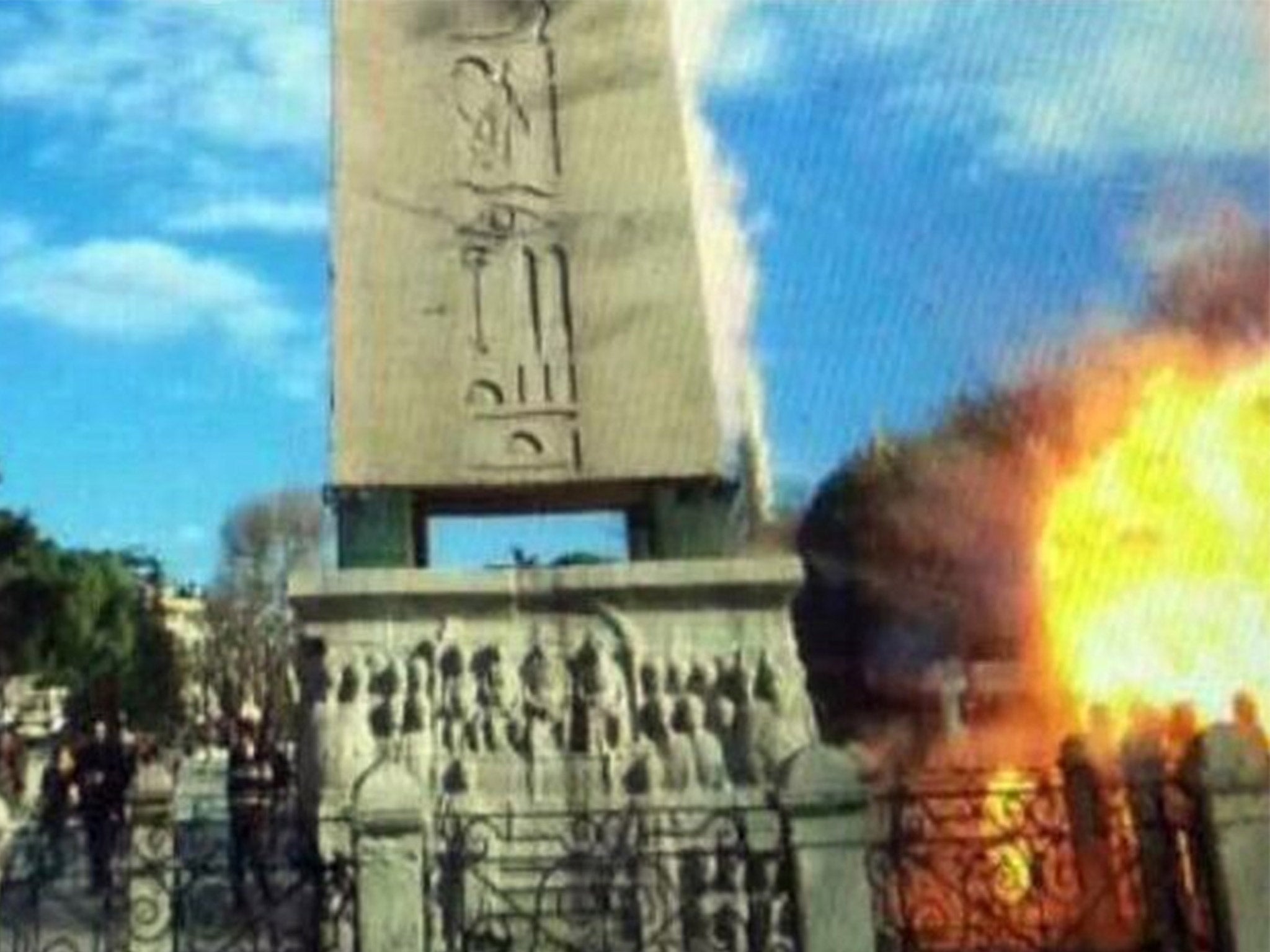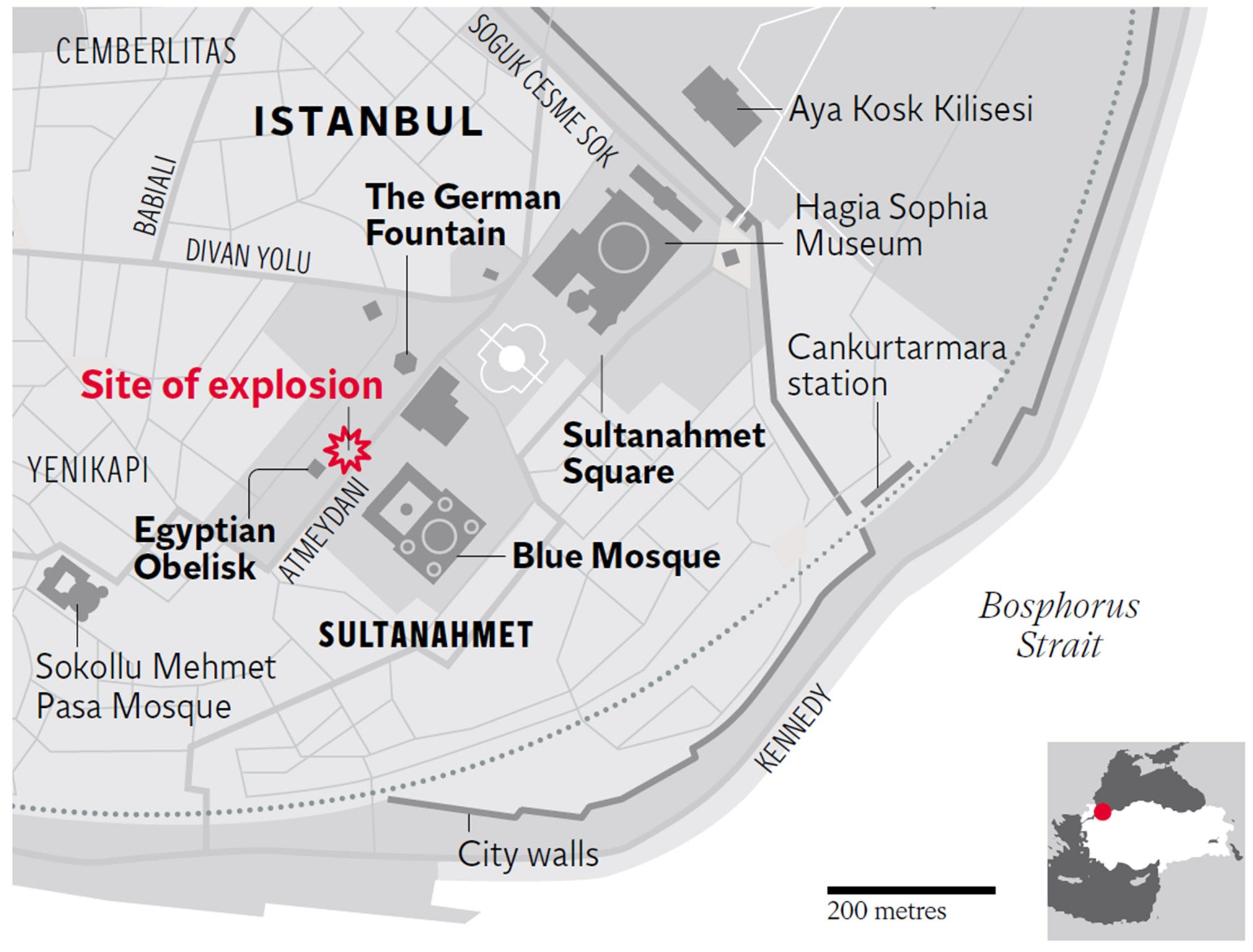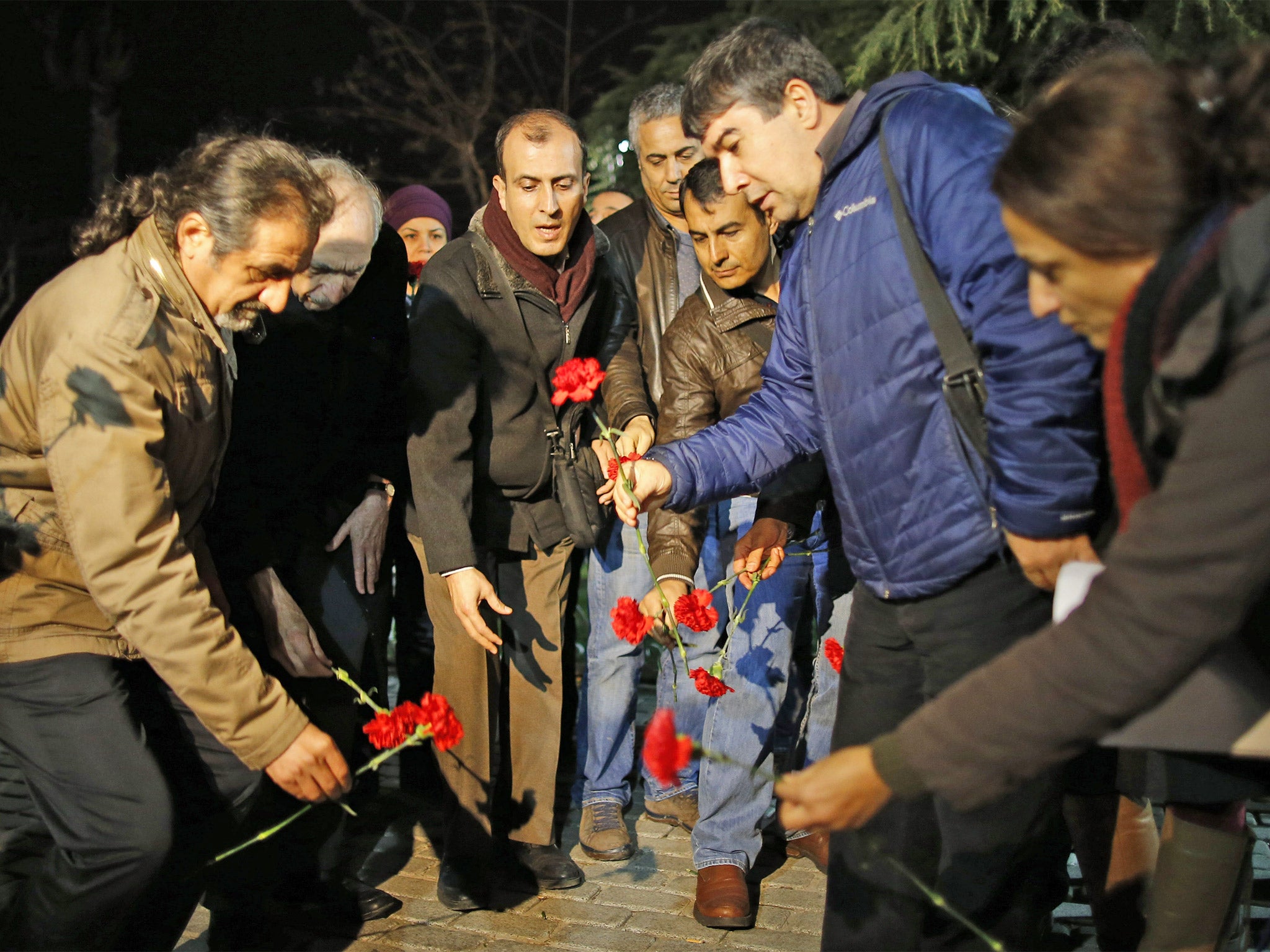Istanbul attack: Saudi suicide bomber 'not well known' in security circles kills least 10 people in city’s tourist district
Isis-inspired Nabil al-Fadli responsible for latest atrocity, triggering fears that the Islamists are expanding their campaign in the country

Far from the long and porous border he is said to have crossed to enter Turkey, a suicide bomber detonated his explosives in the ancient heart of Istanbul yesterday.
Near the Blue Mosque in Sultanahmet Square, the historic tourist centre of the Bosphorus city, flames engulfed one side of the ancient Egyptian obelisk of Theodosius as a man later identified by Turkey as Saudi-born Nabil al-Fadli, 28, triggered his device near a group of German tourists.
Body parts littered the pavement, many victims rendered unrecognisable by the blast at close quarters. At least 10 people were instantly killed, among them eight Germans and a Peruvian. Ten Germans were among those wounded, including a married couple who were said to have life-threatening injuries.
Authorities in Istanbul had long feared that it was only a matter of time until the city was attacked by Isis. According to Turkish officials, a major terror plot planned for the same day as the Paris attacks in November was foiled.
The German tourists killed yesterday are thought to have been in Istanbul on a package tour organised by Lebenslust Touristik, a Berlin travel agency. The group of 33 travellers was due to fly next to Dubai and Abu Dhabi. Among the injured at hospitals across the city last night, Jostein Nielsen, a 59-year-old Salvation Army officer from Norway, said: “There were human remains all over the place.” His wife, Magna Vaaje Nielsen, added: “One does not think that such things will happen when you are sightseeing.”
After attacks by Isis in the capital, Ankara, and the border town of Suruc last year, the bombing in Istanbul yesterday triggered fears that the Islamists are expanding their campaign in Turkey. Ankara has long been accused of failing to take adequate action against jihadists crossing back and forth from Turkey into Syria. Critics say that the government has been, at best, negligent and, at worst, has turned a blind eye to such movements – or even that “deep state” elements were co-operating with Isis. Government officials counter that the whole world was slow to wake up to the danger posed by the group, and say that Western nations unfairly blamed Turkey for their own failures to stop foreign jihadists heading to Syria.

After severe criticism of police and intelligence failures over a bombing in the Turkish capital in October that left 103 dead, Turkish police have also carried out large numbers of raids on suspected terror cells. At least 22 people with alleged links to the group were detained in the past two weeks.
Kursat Yilmaz, who has run tours in Sultanahmet Square for 25 years, told Reuters: “We’re not surprised this happened here; this has always been a possible target.”

President Recep Tayyip Erdogan vowed to continue a “determined and principled stance” in the fight against terrorism. The German Chancellor, Angela Merkel, said that terrorism had again showed its “cruel and inhuman face” in Istanbul. She said: “Today Istanbul was hit; Paris has been hit, Tunisia has been hit, Ankara has been hit before.”
Fadli, a 28-year-old who was born in Saudi Arabia but spent time in Syria, had recently crossed from Syria to Turkey, authorities said. He was not on any watch list of suspected Isis fighters. The Saudi was identified, with a swiftness that surprised some, by body parts found at the scene in Sultanahmet. Officials told The Independent that he was “not well known” in international security circles.
The Turkish Prime Minister Ahmet Davutoglu said the bomber was an Isis member and a “foreign national”. He said: “Turkey won’t backtrack in its struggle against Daesh [Isis] by even one step. This terror organisation, the assailants and all of their connections will be found and they will receive the punishments they deserve.”

Turkey, a Nato member, is part of the US-led coalition fighting against Isis. Ankara is also battling an uprising in the mainly Kurdish south-east between the state and the Kurdistan Workers’ Party (PKK), which has been fighting for three decades for Kurdish autonomy.
Some analysts say that Turkish authorities are overstretched due to the demands of battling on several fronts simultaneously.
Mr Yilmaz, the tour operator in Sultanahmet Square, said he had sold a package to a tourist from Colombia just an hour after the blast. “The reality is the world has grown accustomed to terrorism. It’s unfortunate, and I wish it weren’t true, but terrorism now happens everywhere,” he said.
“The agenda changes quickly in this age. If tourism is affected by this, it will be temporary. These things pass.”
Join our commenting forum
Join thought-provoking conversations, follow other Independent readers and see their replies
Comments
Bookmark popover
Removed from bookmarks